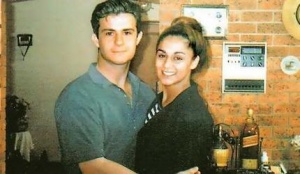SOTIRIS Dounoukos can still remember when news of one of Canberra’s most infamous crimes broke in October 1997.
Twenty-six-year-old engineer Joe Cinque had been killed at the hands of his girlfriend, ANU law student Anu Singh, who laced his coffee with Rohypnol and, while he was sedated, injected him with a lethal dose of heroin. For 36 hours she watched him vomit blood and slowly die in their Downer flat.

“It was such an awful, extreme act, and as we found out more, it really affected the broader community.”
Over 15 years later, Canberra-based Sotiris will direct a feature film based on the crime, working with Sydney writer Matt Rubinstein, and Sue Murray from Fandango Australia, who produced the AFI award-winning film “Ten Canoes”.
This will be Sotiris’ first feature film. A graduate of the Film and Television School of the Victorian College of the Arts, his short films have screened extensively at international film festivals.
The screenplay, co-written by Sotiris, is based on author Helen Garner’s best-selling book, “Joe Cinque’s Consolation”, and the film will have the same name.
Garner gave Sotiris her blessing to write the script after they met through a mutual friend.
“She’s seen the script and is very happy with it,” Sotiris says.
“We weren’t interested in making the film without her feeling it was a worthy adaptation of the book she put six years of her life into. It’s also a book that means a lot to people.”
A great deal of additional detail and research went into writing the screenplay, says Sotiris, including finding old newspaper clippings, court transcripts, interviewing witnesses to the events, and visiting Cinque’s parents.
But trying to understand why Singh did what she did, was one of the most difficult processes.
“Like the book, I wanted a balance of an interrogation of what actually happened and the awful nature of that act, without stepping away from the important questions raised,” Sotiris says.
“It certainly won’t be a painless process for those directly involved, nor will it be for people looking at these events again.”
Singh was convicted of manslaughter and sentenced to 10 years’ prison, but served just four after the trial, released on parole in 2004.
Told from different viewpoints, the film will consider the involvement of the people surrounding the events, including Singh’s friends, who were at the house the night she killed Cinque.
“Given the film involves a group of people, there’s multiple perspectives we need to traverse to understand Joe’s death and reveal the multifaceted community that contextualises the crime,” Sotiris says.
“Joe Cinque’s Consolation” will be shot around Canberra and for local audiences, connecting the crime with a familiar location could be unsettling.
“Like a lot of people throughout Australia, I was affected by [Garner’s] book and with that additional connection being from Canberra, it draws you in and repels you in a way, looking at places and a time you know intimately,” Sotiris says.
The film, which has received funding from Screen Australia and ScreenACT, is currently in the process of casting and is due to start production at the end of the year.
Who can be trusted?
In a world of spin and confusion, there’s never been a more important time to support independent journalism in Canberra.
If you trust our work online and want to enforce the power of independent voices, I invite you to make a small contribution.
Every dollar of support is invested back into our journalism to help keep citynews.com.au strong and free.
Thank you,
Ian Meikle, editor




Leave a Reply